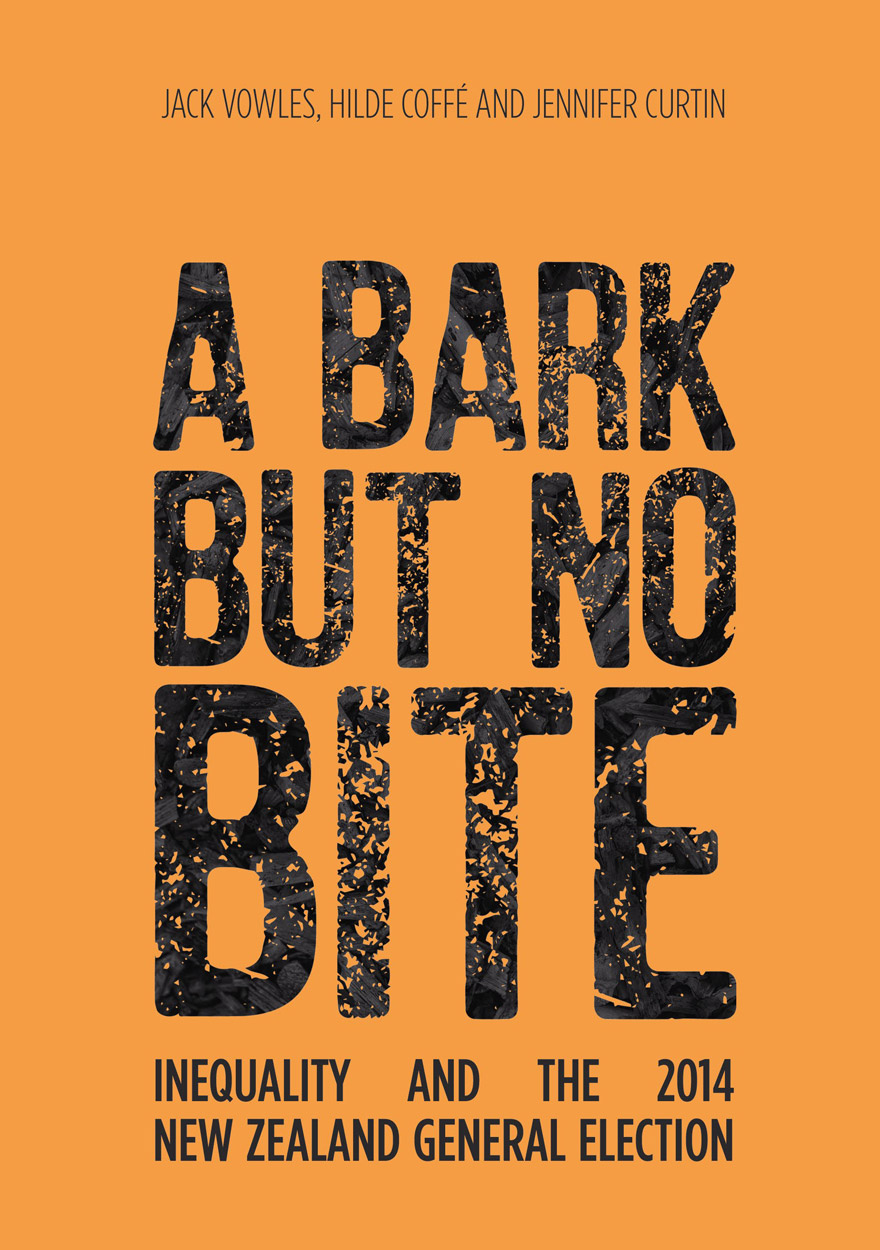Inequality and the 2014 New Zealand General Election
Publication date: August 2017
Based on New Zealand Election Study (NZES) data from a sample of 2,830 eligible voters, A Bark But No Bite explores a puzzle. While there was a lot of talk about inequality before the 2014 general election in New Zealand, and during the campaign, concern about inequality appeared to have no tangible effect on the election outcome. This book shows that, by its attention to the concerns of middle ground voters, the National Government had reduced the potential of policy differences to drive voter choices. Perceptions of competence and effective leadership were National’s strongest suit, crowding out voter concerns over matters of policy. When voters did consider policy, inequality and related concerns were second to the economy. Traditional priorities about health and education, and perceptions of party differences on these matters, had faded into the background.
Meanwhile, voters doubted the opposition Labour Party’s ability to govern effectively in an alternative coalition to that of the National-led government. Labour’s policies were too many. In various ways, they would have chipped away at inequality, but lacked a coherent narrative and presentation. This book confirms that Labour’s proposal to increase the age for receipt of New Zealand superannuation gained Labour no new votes.
Hopes that the ‘missing million’ people who failed to turn out to vote in 2011 would vote in 2014 and give an advantage to the left were unfulfilled. A comprehensive study of the 2014 election, this book provides a detailed account of all these findings, and a host of others.






